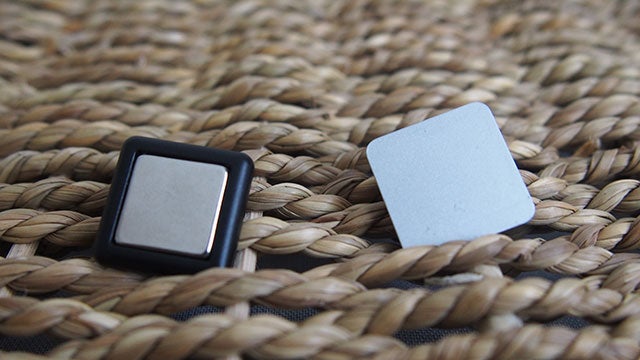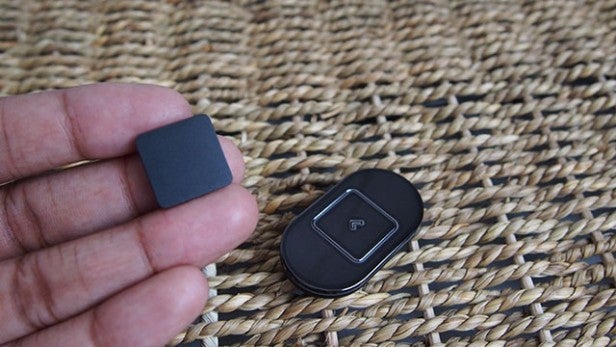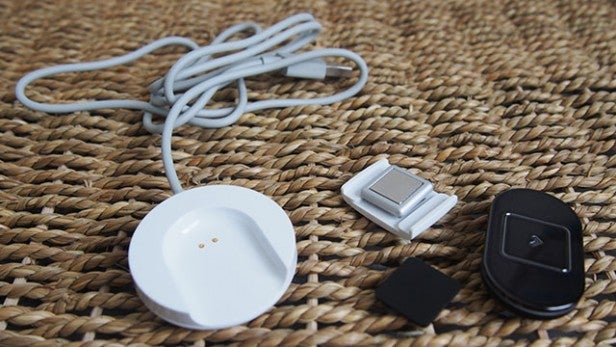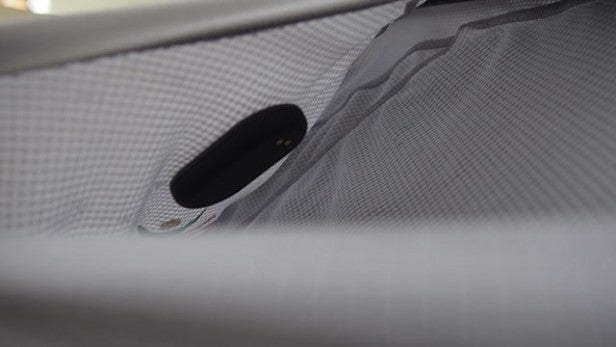Lumo Lift Review
Lumo Lift
This tiny fitness tracker monitors posture and can be worn on your clothes

Sections
- Page 1 Lumo Lift Review
- Page 2 App, Performance, Battery Life and Verdict Review
Verdict
Pros
- Elegant, discreet design
- Delivers unique posture data
- Useful posture coaching mode
Cons
- Easy to forget on clothes
- Questionable data tracking
Key Specifications
- Review Price: £99.00
- Tracks posture, distance, steps and calories; Bluetooth 4.0 syncing; magnetic clasp; 0.1-inch thick; 5-day battery life; charges fully in two hours; 32MB of flash memory (four weeks' data)
What is the Lumo Lift?
The Lumo Lift is a small, stylish activity tracker that can be worn discreetly underneath your clothes and can record step count, calories burned and distance travelled. Like Lumo BodyTech’s Kickstarter-funded Lumo Back belt, it also has the unique ability to monitor posture – something that’s important for ensuring you’re not putting too much stress on important muscles and ligaments.
If you’ve ever heard someone talk about strengthening your core, this is where the Lumo Lift aims to make a difference. If you work at your desk a lot, sitting up straight is more beneficial for your health.
While the Lift certainly does make you think more about wanting to slouch, as an activity tracker it’s lacking in certain areas, and its miniature form poses some problems, too.

Lumo Lift – Design
Alongside the easy-to-lose Misfit Shine, the Lumo is one of the most elegant trackers we’ve tried on. If you don’t want to draw attention to your new-found penchant for monitoring health, then this is arguably one of the best ways to do it.
The Lift is made up of two tiny devices. The first is a dark grey aluminium clasp that’s extremely light and about the same size as a Scrabble token. This is secured in place via the main Lift sensor, which is comparatively larger than the clasp, but its plastic body is still small and is the part of the Lift setup that’s hidden away the most. There’s a spare silver clasp included, along with a secondary sensor that’s designed to clip onto something like a bra strap.
In the box you also get the charging cradle, which is roughly the same size as the Lift sensor and magnetically holds the two pieces of the tracker in place, so there’s no lining up of charging pins required here.
Unlike wrist-worn trackers, there’s a very specific way you’ll need to wear the Lift. The sensor needs to be worn against the skin, one inch below the collarbone, with the clasp holding it in place over a T-shirt. You don’t notice the sensor and there’s no irritation to worry about, but if you like your clothes baggy, you’re going to have a problem. The Lift simply won’t work.

There’s a bigger problem here, though. The Lift is simply too easy to forget on your clothes. The app will send out notifications in the morning to remind you to put it on, but if you’re in a rush in the morning and forget to look down at your phone – as we did on many occasions while testing the Lift – it can often get left behind.
It’s not waterproof, either, so you can’t take it in the shower – and if you do leave it on a sweaty shirt and stick it in the washing machine, it’s game over. Maybe there’s an argument here for a vibrating alarm inside the device, to give the kind of prompt that’ll help you remember to attach it before you leave the house.

Lumo Lift – Features
The Lumo Lift uses a trio of sensors to monitor movement, which makes it not too dissimilar to every other activity tracker. There’s a 3-axis accelerometer, a gyroscope and a magnetometer used to deliver distance, step count and calories-burned data. Disappointingly, there’s no support for sleep or food tracking, so this is geared towards movement as opposed to providing a full, comprehensive picture of your entire day.
Posture monitoring is based around what Lumo claims is a variety of “algorithims and hardware” that can create a snapshot of the curvature of your spine and the positioning of your shoulders, chest and upper back. Once you’ve calibrated what it deems is good posture it’ll detect forward, backward and sideways motion.
A key component for making that good or bad posture known to the user is through the built-in vibration motor. It’s largely confined to the Lumo Lift’s Coach mode, where a different combination of buzzes notify different things. Three short buzzes indicate the sensor is aligned, while one short buzz indicates a Coaching session. When it repeatedly buzzes throughout a coaching session, that’s a warning that your posture isn’t good. You can also use it to exit coaching sessions without jumping back into the smartphone app.
Those vibrations are quite strong, and if they activate while you’re sitting on the train they’re embarrassingly loud, which can’t be a good thing if this is supposed to be discreet tracking.
When data’s recorded it’s stored in the cloud, although you do have the added bonus of the 32MB of onboard flash memory, giving you enough room for four weeks of data.


